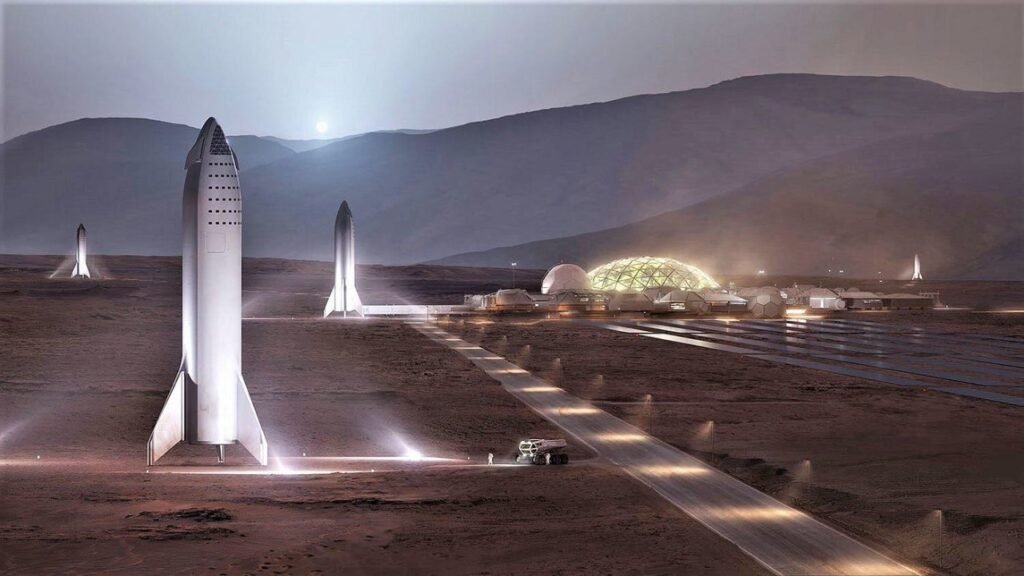In the vast expanse of the cosmos, humans have always been fascinated by the mysteries of space exploration. The quest to unravel the secrets of the universe has driven countless scientific endeavours and technological breakthroughs throughout history. Today, space exploration and commercialization are intertwined in a dynamic and rapidly evolving landscape.
The Latest Trends in Space Exploration
In recent years, space exploration has witnessed a surge in activity, fueled by advancements in technology and the increasing involvement of commercial entities. Here are some of the key trends shaping the future of space exploration:
- Private Sector Involvement: The emergence of commercial space companies like SpaceX, Blue Origin, and Virgin Galactic has brought new energy and innovation to the space industry. These companies are developing reusable rockets, satellite constellations, and space tourism vehicles, lowering costs and expanding access to space.
- International Collaboration: Space exploration is increasingly becoming a global endeavor, with countries around the world collaborating on ambitious missions. The International Space Station (ISS), a joint project of the United States, Russia, Europe, Japan, and Canada, stands as a testament to the power of international cooperation in space.
- Scientific Discoveries: Space exploration continues to yield groundbreaking scientific discoveries. The exploration of Mars, Jupiter, and Saturn by robotic probes has revealed fascinating insights into the geology, atmosphere, and potential for life on these planets.
Satellite Technology and Its Impact
Satellites have become indispensable tools for communication, navigation, weather forecasting, and environmental monitoring. The proliferation of small satellites, known as CubeSats, has made it possible for universities, research institutions, and startups to conduct their own space missions at a fraction of the cost of traditional satellites.
- Earth Observation: Earth observation satellites provide valuable data on climate change, deforestation, and natural disasters. This information is crucial for policymaking, disaster management, and sustainable development.
- Space-Based Internet: Satellite constellations like Starlink and OneWeb aim to provide global internet connectivity, particularly in underserved areas, by beaming high-speed internet signals from space.
- Space-Based Manufacturing: Satellites are being explored as platforms for manufacturing in space, taking advantage of the microgravity environment to create materials and products that are difficult or impossible to produce on Earth.
The Rise of Commercial Space Ventures
The commercialization of space has opened up a wide range of new opportunities for businesses and entrepreneurs. Here are some of the key areas where commercial space ventures are making a significant impact:
- Space Tourism: Suborbital space tourism flights offered by companies like Virgin Galactic and Blue Origin are making space travel accessible to a wider audience.
- Satellite-Based Services: Companies like Planet Labs and Maxar Technologies provide satellite imagery and data services for a variety of industries, including agriculture, forestry, and insurance.
- Space Mining: Companies are exploring the potential of mining asteroids and the Moon for valuable resources such as water, metals, and rare earth elements.
- In-Space Manufacturing: Startups like Made In Space are developing technologies for manufacturing in space, including 3D printing and biofabrication.
There are several other startups operating in the space exploration and commercialization field, all around the world including:
- Relativity Space: Developing 3D-printed rockets and satellites
- Astra Space: Developing small satellite launch vehicles
- Firefly Aerospace: Developing small satellite launch vehicles
- Launcher: Developing reusable rockets
- Momentus: Developing in-space transportation and logistics services
- Orbit Fab: Developing in-space refueling services
- SpaceX: Developing reusable rockets, satellite constellations, and space tourism vehicles
- Virgin Galactic: Developing suborbital space tourism flights
- Blue Origin: Developing suborbital and orbital space tourism vehicles
In addition to the startups mentioned above, there are several Indian startups operating in the space exploration and commercialization field, including:
- Agnikul Cosmos: Developing small satellite launch vehicles
- Bellatrix Aerospace: Developing electric propulsion systems for satellites
- Dhruva Space: Developing small satellites and launch vehicles
- Pixxel: Developing Earth observation satellites
- Skyroot Aerospace: Developing small satellite launch vehicles
- SpaceKidz India: Developing educational space programs and products
- TeamIndus: Developing a lunar rover for the Google Lunar XPRIZE competition
The future of space exploration and commercialization is filled with both challenges and limitless possibilities. As technology continues to advance and the private sector plays an increasingly prominent role, we can expect to see even more groundbreaking developments in the years to come.





